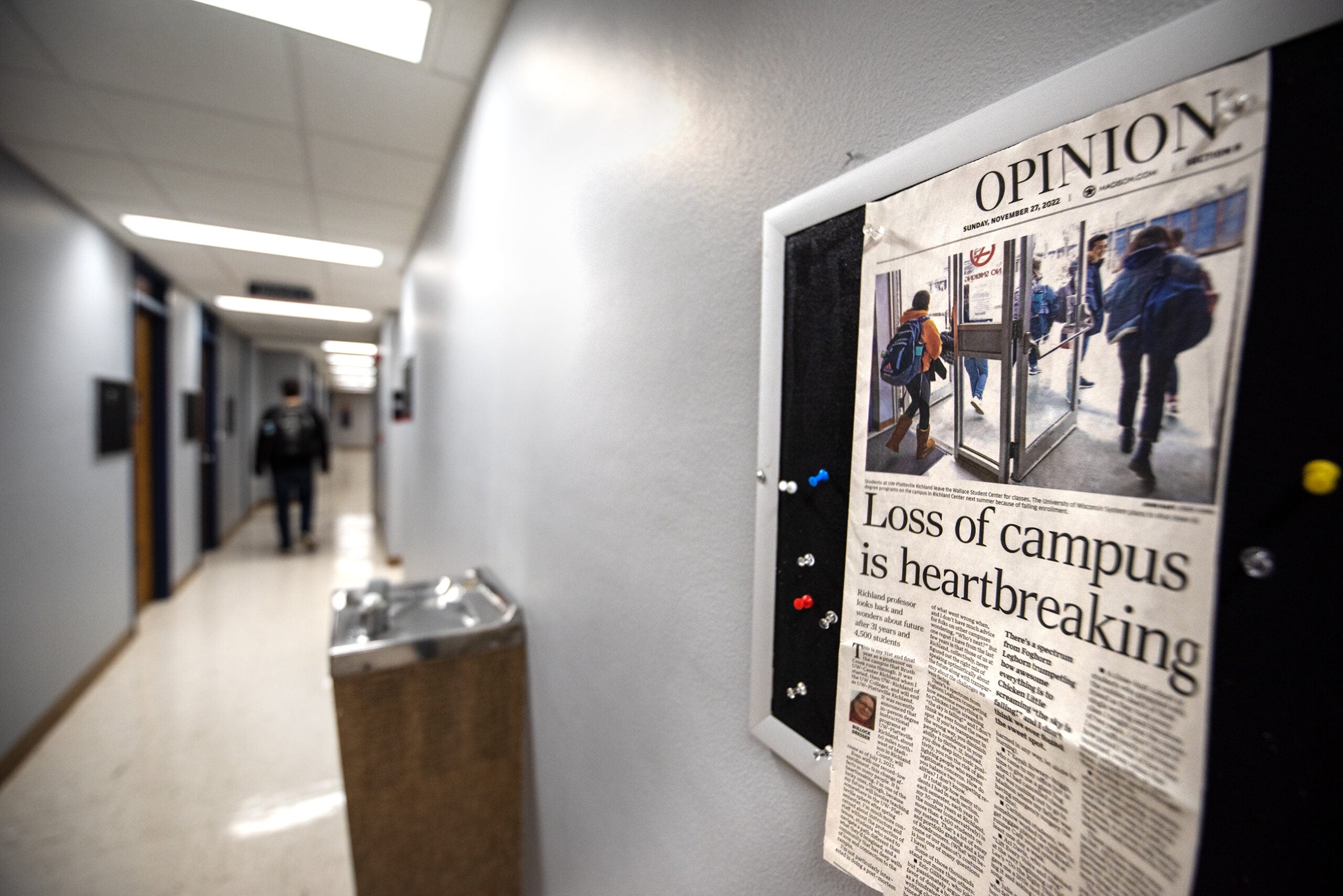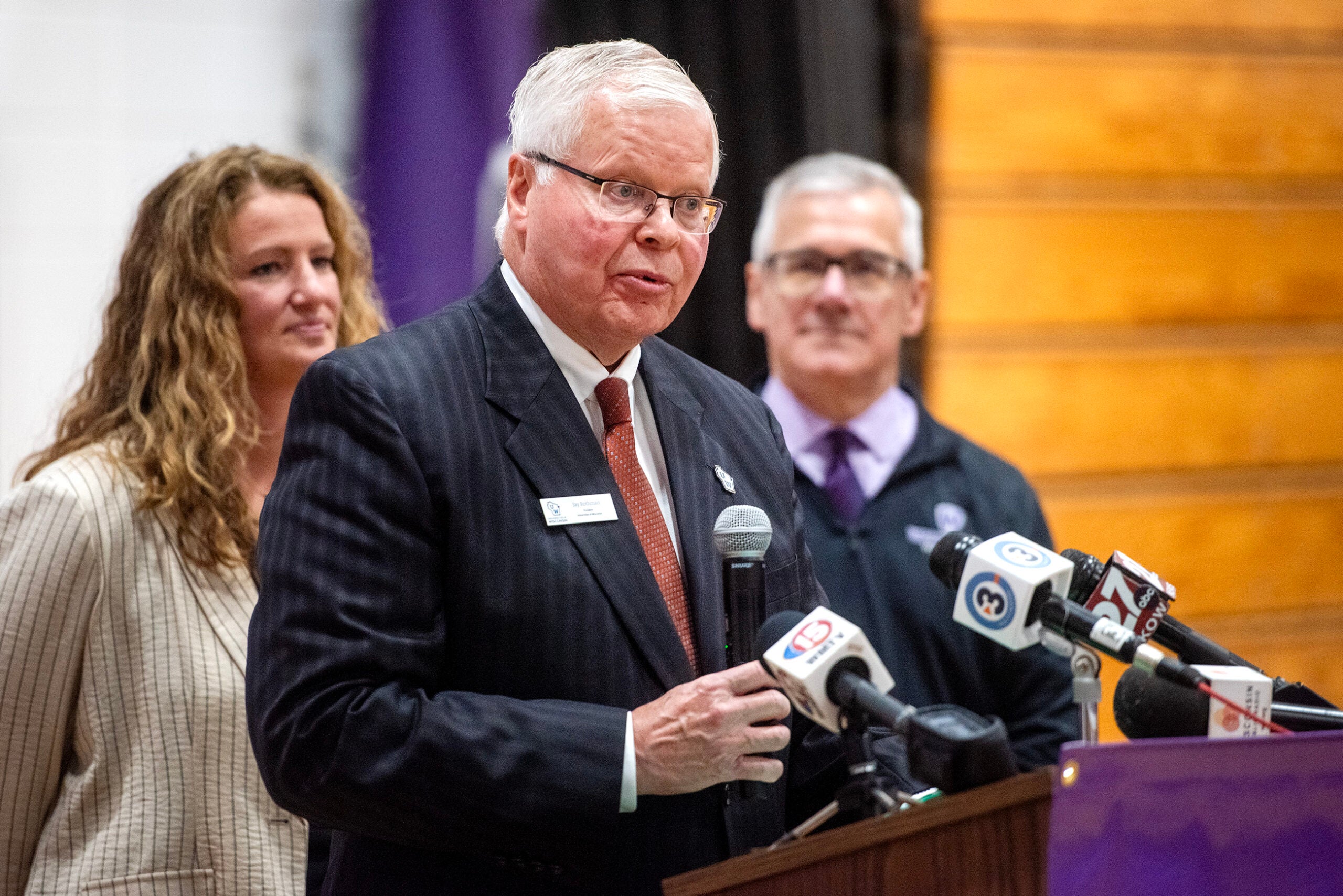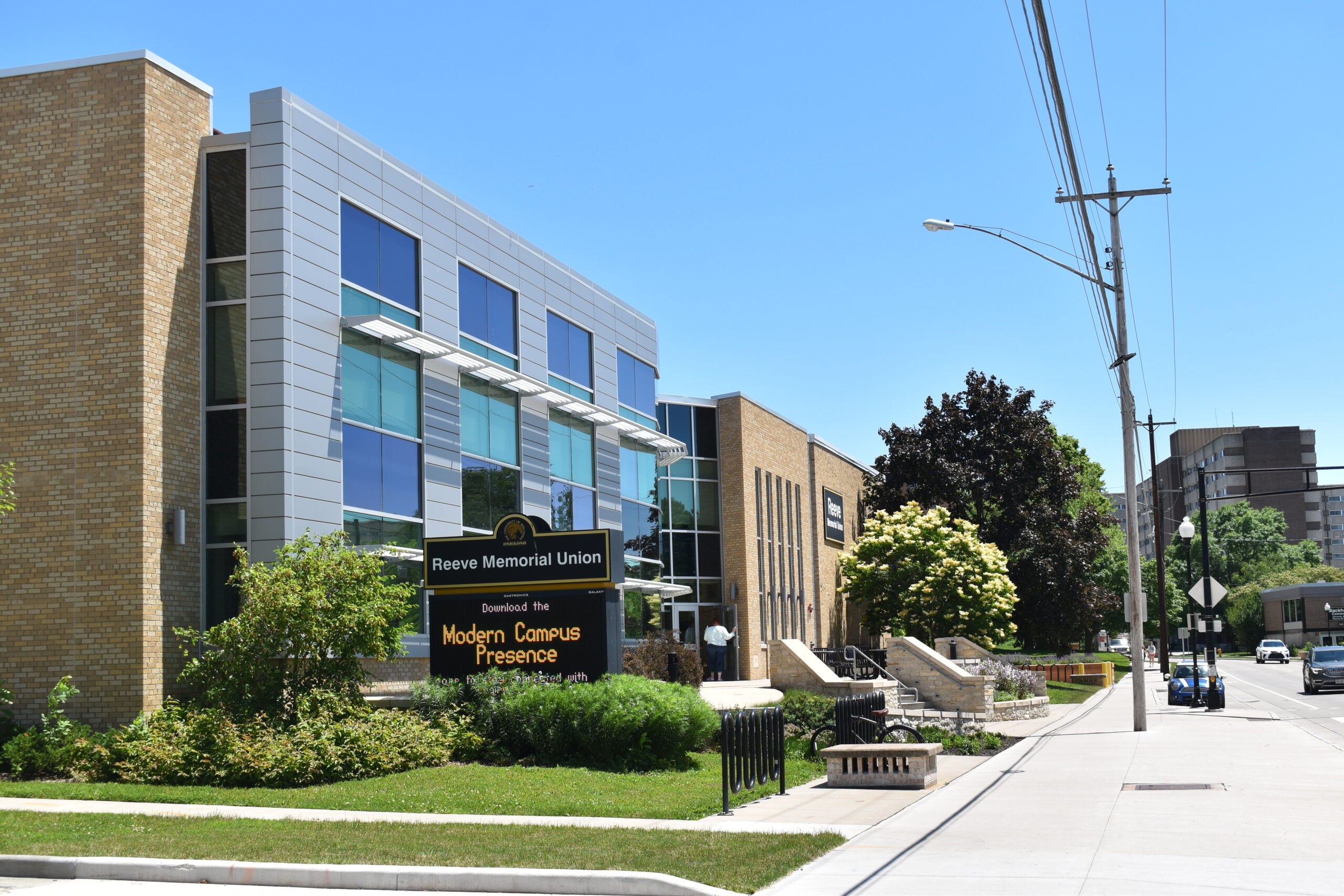The University of Wisconsin System is making a new push to encourage more potential college students to apply for federal financial aid. The goal is to get more high school seniors from lower income families to consider enrolling at state universities and ensure qualification for a new tuition promise initiative.
Just more than half of Wisconsin high school seniors complete the Free Application for Federal Student Aid or FAFSA, according to the National College Attainment Network. Nationally, Wisconsin ranks 38th in terms of FAFSA completion.
In hopes of boosting those numbers, the UW System is launching a social media advocacy campaign aimed at encouraging students and parents to apply for federal assistance via sites like TikTok, Instagram, Spotify, Pandora, Twitter and Facebook. A new website exclaims, “FAFSA will show you the money!” and offers a guide to creating a federal student aid ID and completing the annual application.
News with a little more humanity
WPR’s “Wisconsin Today” newsletter keeps you connected to the state you love without feeling overwhelmed. No paywall. No agenda. No corporate filter.
“This is especially important for high school seniors and current UW students, including UW students who have not previously filed,” UW System President Jay Rothman said during a Thursday meeting of the UW Board of Regents in Eau Claire. “It’s the first step for eligibility in the Wisconsin Tuition Promise, a new program which we announced recently.”
Rothman announced the launch of the “Wisconsin Tuition Promise” initiative in August that will waive tuition and fees not covered by financial aid for students from families with incomes below $62,000 per year. The system will begin offering the tuition promise in fall 2023.
The UW System anticipates 8,000 students will qualify for the tuition waivers once the initiative is fully implemented over the next four years. Average awards are expected to be around $4,500. It is estimated the tuition promise will cost around $13.8 million during the 2023-24 school year. Rothman’s first budget request is seeking an additional $24.5 million from the state Legislature on an ongoing basis to help pay for it.
“At the end of the day, we are in a war for talent in this state,” Rothman said. “We are not filling the jobs that employers have in the state of Wisconsin, whether that be nurses, engineers, teachers, data scientists and that list goes on and on.”
Aside from boosting the state’s economy, the UW System’s tuition waiver and FAFSA completion campaigns are also aimed at stemming long-term enrollment declines at most state universities and branch campuses. Estimates from the UW System Administration office show enrollment declines of between 3 and 6 percent at nine of the state’s 13 universities. Following a peak of 182,090 students across all UW System campuses in 2010, enrollment has fallen by around 11 percent to a total of 161,430 students this fall, according to the latest estimates.
Enrollment declines coupled with a decade-long freeze on in-state undergraduate tuition increases mandated by the Wisconsin Legislature and significant budget cuts under Republican and Democratic governors have strained campus budgets. That has forced state universities to spend down tuition reserves with some cutting staff to stay solvent.
The Wisconsin Tuition Promise was first pitched by former UW System President and four-term Republican Gov. Tommy Thompson in his 2020 budget request. Democratic Gov. Tony Evers supported the proposal and included it in his biennial state budget, but Republicans on the Legislature’s Joint Finance Committee rejected it.
Louisiana leads the nation in FAFSA completion with just more than 70 percent of high school students applying for federal aid. It was the first state in the nation to require most public school students to submit an application in 2018. Legislators in Florida, Hawaii, Indiana, Nebraska, New York and South Carolina considered similar requirements this year.
When asked if Wisconsin should work toward a FAFSA requirement for public school students, Rothman said he’s talked with state Superintendent of Public Instruction Jill Underly about the issue.
“We would certainly look forward to working with the (Department of Public Instruction),” said Rothman, “And I think the DPI is also very interested in that.”
In the meantime, Rothman said the state university system and public school system can build “greater cooperation” aimed at encouraging more public school students to apply.
Wisconsin Public Radio, © Copyright 2025, Board of Regents of the University of Wisconsin System and Wisconsin Educational Communications Board.






